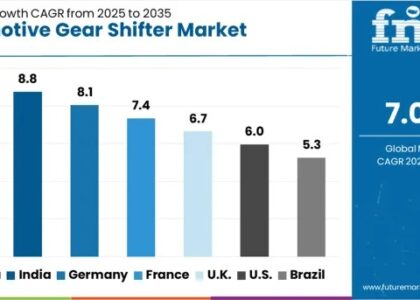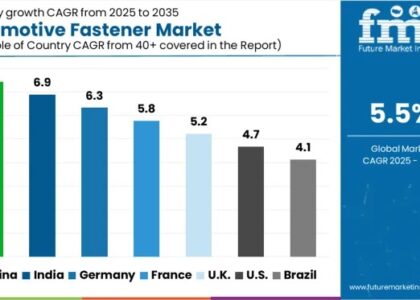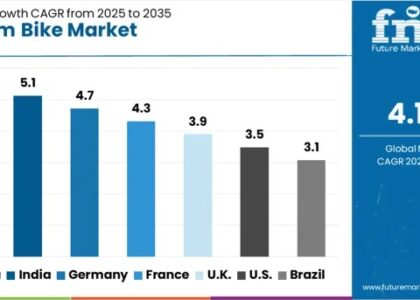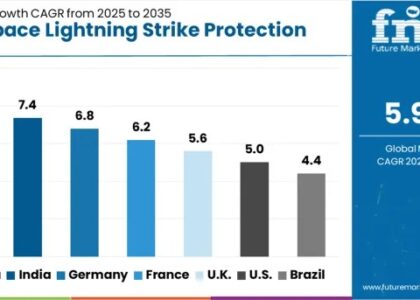
The Tissue Engineered Skin Substitute Market is poised for steady growth, with an estimated value of USD 2.4 billion in 2024 and projected to reach USD 3.5 billion by 2034, growing at a compound annual growth rate (CAGR) of 3.9% during the forecast period from 2024 to 2034. This growth is driven by the increasing demand for advanced treatments for burn injuries, chronic wounds, and dermatological conditions, alongside the rising adoption of tissue-engineered skin substitutes as viable alternatives to traditional skin grafts.
Tissue-engineered skin substitutes are innovative products designed to replace or repair damaged skin. They offer a more efficient and sustainable solution than conventional skin grafts by promoting faster healing and reducing complications. These substitutes are increasingly used in burn care, surgical wound healing, and treatment of chronic wounds, particularly in patients with diabetes and vascular diseases. The growing prevalence of burn injuries and the rising incidence of chronic skin conditions are key drivers of the market.
Technological advancements in tissue engineering and regenerative medicine are enhancing the efficacy of skin substitutes. Innovations, including bioengineered skin models and personalized skin substitutes, are expected to further boost the adoption of these products. Moreover, the growing focus on wound care management and the development of skin substitutes tailored to specific patient needs are adding momentum to the market’s expansion.
North America remains a dominant player in the market, driven by a well-established healthcare infrastructure and rising demand for advanced wound care solutions. The Asia-Pacific region is expected to witness the highest growth rate, attributed to increasing healthcare investments, rising awareness, and improving access to advanced medical treatments.
Key Takeaways:
- The global tissue engineered skin substitute market is projected to grow from USD 2.4 billion in 2024 to USD 3.5 billion by 2034, at a CAGR of 3.9%.
- The rising demand for advanced wound care solutions, including for burn injuries and chronic wounds, is a major factor driving market growth.
- Technological advancements in tissue engineering and personalized skin substitutes are enhancing treatment outcomes and accelerating adoption.
- North America dominates the market, while the Asia-Pacific region is expected to witness the fastest growth, fueled by improving healthcare access and rising investments.
Key Growth Drivers
- Increasing Demand for Advanced Wound Care: The rising incidence of chronic wounds and severe skin injuries is driving the need for effective tissue-engineered solutions.
- Technological Advancements: Innovations in tissue engineering, including the use of stem cell-based approaches and 3D bioprinting technologies, are enhancing the efficacy of skin substitutes.
- Shift Towards Non-Animal Derived Materials: There is a growing preference for ethically sourced materials in tissue engineering, leading manufacturers to explore plant-derived polymers and synthetic peptides.
Regional Insights
- North America is anticipated to dominate the market due to advanced healthcare infrastructure and high demand for innovative wound care solutions.
- The Asia-Pacific region is expected to show strong growth potential, driven by increasing healthcare investments and rising awareness about advanced treatment options.
Future Outlook
The tissue engineered skin substitute market is set for steady growth as advancements in technology continue to enhance product offerings and improve patient outcomes. The focus on patient-centered care and the increasing prevalence of chronic wounds will likely drive further expansion in this sector.
Competitive Landscape
The competitive landscape of the tissue engineered skin substitute market is characterized by a mix of established players, emerging companies, research institutions, and academic centers.
The entities are engaged in research, development, manufacturing, and commercialization of tissue engineered skin substitutes, aiming to address the unmet needs of patients with acute and chronic wounds worldwide.
Company Portfolio
- Acelity, now part of 3M, is a global leader in advanced wound care solutions. Their portfolio includes tissue engineered skin substitutes designed to promote wound healing and tissue regeneration.
- The products leverage innovative technologies and biomaterials to address a wide range of acute and chronic wounds, including diabetic foot ulcers, venous leg ulcers, and pressure ulcers.
- Integra LifeSciences Corporation is a leading global provider of regenerative medicine and surgical solutions. Their portfolio includes tissue engineered skin substitutes that are engineered to mimic the structure and function of native skin tissue.
- The tissue engineered skin substitutes by Integra offer advanced wound healing properties, including cellular components, growth factors, and extracellular matrices that promote tissue regeneration and repair.
Grab Your Complete Report Instantly
Segmentation Analysis of the Tissue Engineered Skin Substitute Market
By Product:
- Acellular Skin Substitutes
- Acellular skin substitutes based on Amniotic Membrane
- Other Acellular Skin Substitutes
- Biologic Skin Substitute
- Allograft
- Xenograft
- Cellular Skin Substitutes
- Cellular Skin Substitute based on Amniotic Membrane
- Other Cellular Skin Substitutes
- Synthetic Skin Substitutes
By Material:
- Synthetic
- Natural
By Application:
- Chronic Wounds
- Venous leg Ulcers
- Diabetic Foot Ulcer
- Pressure Ulcers
- Acute Wounds
- Traumatic Wounds
- Burn Cases
- Other Applications
By End User:
- Hospital
- Specialty Clinics
- Ambulatory Surgical Centers
- Research Laboratory
By Region:
- North America
- Latin America
- Western Europe
- Eastern Europe
- South Asia and Pacific
- East Asia
- The Middle East and Africa
Author By:
Sabyasachi Ghosh (Associate Vice President at Future Market Insights, Inc.) holds over 12 years of experience in the Healthcare, Medical Devices, and Pharmaceutical industries. His curious and analytical nature helped him shape his career as a researcher.
Identifying key challenges faced by clients and devising robust, hypothesis-based solutions to empower them with strategic decision-making capabilities come naturally to him. His primary expertise lies in areas such as Market Entry and Expansion Strategy, Feasibility Studies, Competitive Intelligence, and Strategic Transformation.
Holding a degree in Microbiology, Sabyasachi has authored numerous publications and has been cited in journals, including The Journal of mHealth, ITN Online, and Spinal Surgery News.
About Future Market Insights (FMI)
Future Market Insights, Inc. (ESOMAR certified, recipient of the Stevie Award, and a member of the Greater New York Chamber of Commerce) offers profound insights into the driving factors that are boosting demand in the market. FMI stands as the leading global provider of market intelligence, advisory services, consulting, and events for the Packaging, Food and Beverage, Consumer Technology, Healthcare, Industrial, and Chemicals markets. With a vast team of over 400 analysts worldwide, FMI provides global, regional, and local expertise on diverse domains and industry trends across more than 110 countries.
Contact Us:
Future Market Insights Inc.
Christiana Corporate, 200 Continental Drive,
Suite 401, Newark, Delaware – 19713, USA
T: +1-347-918-3531
For Sales Enquiries: sales@futuremarketinsights.com
Website: https://www.futuremarketinsights.com
LinkedIn| Twitter| Blogs | YouTube





